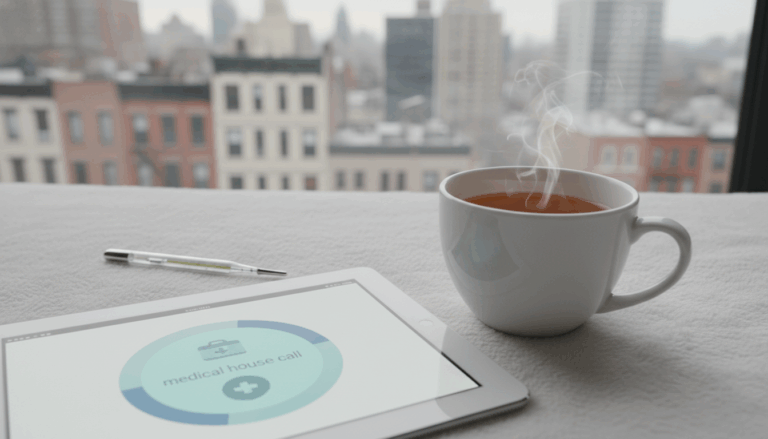Spending hours at home sitting in front of a computer screen can really take a toll on one’s mental wellbeing. It is crucial to take the right steps to ensure you are feeling happy and healthy, and that you keep your immune system as strong as possible while working from home in these uncertain times.
Exercise
Staying active is a great way to decrease stress, and also provides a perfect opportunity for a break from a busy workday at home. Moderate exercise can mean something as simple as going for a walk or jog outside, or even following along with a 30-minute workout video in the comfort of your own home. Not only is exercise a great way to clear your mind for a bit, but science suggests that moderate exercise actually contributes to the strengthening of the immune system.

One suggested way in which exercise stimulates the immune system is by increasing overall circulation, which makes it easier for immune cells to travel around the body. Maintaining an exercise routine that works for you is vital while working from home, for both your mental and physical wellbeing.
Maintain a Nutritious Diet
Paying attention to the food you eat throughout the day can have many beneficial effects on your health. Eating three full meals is important in order to ensure you are receiving all of the vitamins and nutrients you need to keep you going throughout your day, and will also help keep your immune system strong. Knowing which foods will provide you with the vitamins you need is key, some of the most important vitamins and the foods in which they’re found include:
- Vitamin B6: found in chicken, salmon, tuna, bananas, green vegetables and potatoes (with the skin left on). B6 helps the body to store and use carbohydrates from food. Vitamin B6 also plays a role in the production of hemoglobin in the body, which is the protein in red blood cells that carries oxygen around the body.
- Vitamins C: High levels in citrus fruit, including oranges and strawberries, as well as tomatoes, broccoli and spinach. Vitamin C helps to keep cells healthy, as well as maintains skin, blood vessel, and bone health. Moreover, vitamin C helps with wound healing.
- Vitamin E: Almonds, sunflower and safflower oil, sunflower seeds, peanut butter and spinach all contain vitamin E. Vitamin E has antioxidant properties, which help to protect your cells against free radicals, which may contribute to heart disease, cancer, and other diseases.
In addition to a well balanced diet boosting the immune system, eating the right kinds of foods can also help to keep you feeling energized throughout the day, as well as increase your ability to stay focused while doing your work.
Stay Hydrated
Drinking enough water plays a major role in immune functioning. Lymph is a fluid in the circulatory system that contains white blood cells that are responsible for fighting infections in the body. Lymph is made up of mostly water, and staying sufficiently hydrated can support the movement of lymph in the body, thereby strengthening the immune system.

Drinking enough water can also decrease your risk of becoming dehydrated which can lead to headaches, or even vomiting in severe cases. Dehydration can take a serious toll on your ability to complete tasks throughout the day, and may even leave you feeling sick and bedridden, so it is important to drink water frequently throughout the day.
Take Breaks From your Screen
Taking frequent breaks away from the computer screen is extremely important for one’s mental health. It can be exhausting to stare at a screen all day, and this may even result in headaches, or increased irritability. When work permits, it is suggested that you take a break away from your phone or computer. This can give you an opportunity to spend some time with loved ones that live in your house, or even to read a book or magazine for a while.
Ensure You are Getting Enough Sleep
Studies show that people who aren’t fully rested due to their sleep schedule are more prone to falling sick when exposed to viruses, such as those that cause the common cold.

Furthermore, during sleep is a time at which important infection fighting cells in your body are produced. A lack of sleep can also lead to irritability, reduced focus, drowsiness, and a lowered overall mood during the day. This would no doubt have implications on completing work or studying from home, which makes it vital to ensure you are getting enough sleep.

